On this rainy, lush summer day, we revisit the ancient Tea mountain of Luoshuikong to appreciate the fragrance of nature, explore the tea's aroma hidden deep in the mountains, feel the long-standing culture, and savor the profoundness of life like tea.
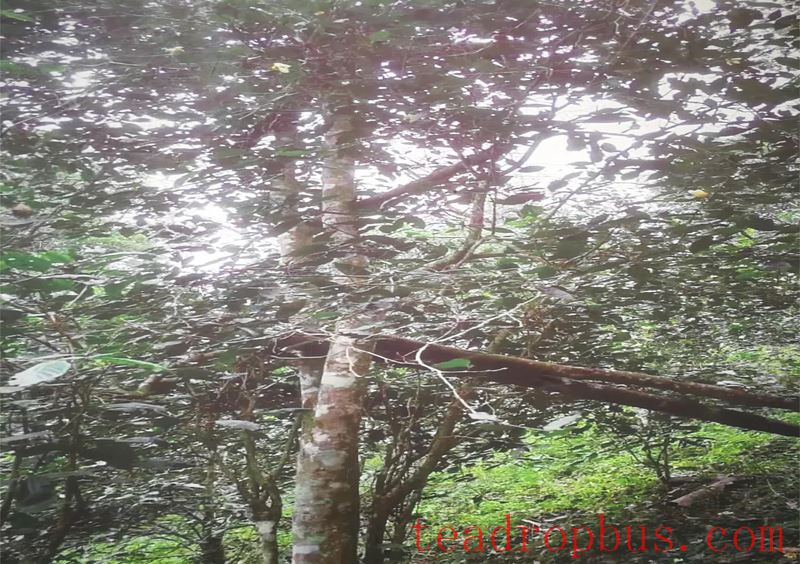
The King Tree of Luoshuikong Tea (archive photo)
Mentioning Yiwu tea, it's hard not to talk about Luoshuikong. When it comes to the ancient trees' tea from Luoshuikong, the robust and rustic mountain air, the distinct characteristics of orchid fragrance and honey sweetness, make many tea merchants and enthusiasts deeply moved and reluctant to leave. The ancient tea mountain and ancient trees of Luoshuikong, with their profound history, have quietly flowed through time year after year.
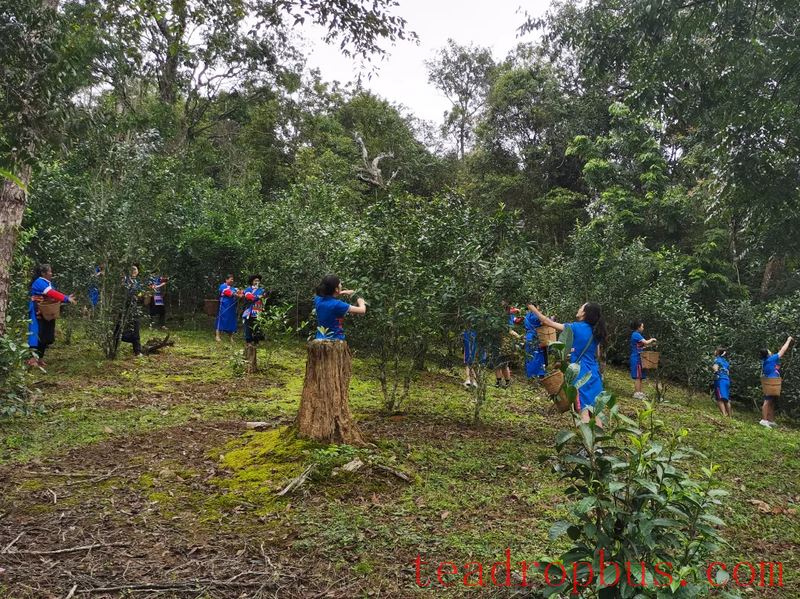
Nestled amidst the mountains and water, the village group of Luoshuikong in Mahai Village, Yiwu Town, Mengla County, reveals its true form in a low-lying area surrounded by hills. The name Luoshuikong comes from both natural formation and a beautiful legend. From Mengxing to Huwaa and extending to Luoshuikong, groundwater and surface water erode soluble rocks, along with the effects of gravity collapse and accumulation, creating this region's karst topography with numerous caves forming a diverse cave cluster. There is a drainage cave at the lowest point next to the village where rainwater and runoff converge and flow away through an underground river. For thousands of years, the cave never accumulates water, and there is no sound when water falls into it. In the past, the ancestors of Luoshuikong did not know about the underground river and attributed a mystical legend to this cave that never accumulates water: inside the cave lives a group of divine beings who can drink vast amounts of rainwater; it is a “thousand-foot deep fairy cave that dispels disasters and drains water,” hence the name Luoshuikong.
The towering peak of Daluodong Mountain stands shoulder to shoulder with clouds and mist, while the gentle stream of Wulou River flows quietly. The elevation of the village group of Luoshuikong reaches 1,400 to 1,600 meters, making it one of the highest villages in Yiwu Town. Surrounding forests are dense, with trees, shrubs, vines, and wild grass distributed in terraces. The coiling vines resemble a landscape painting with a distant atmosphere, and the colorful wildflowers and parasitic orchids emit a faint fragrance. Among the forest slopes, tea trees coexist with the forest. These ancient tea trees, hundreds of years old, still grow naturally, presenting a harmonious scene of “tea among the trees, trees and tea growing together.” As the “Tea Classic” states: “Diffused sunlight, the coexistence of the five elements,” dappled sunlight filters through tall trees into the tea forest. Occasionally, mist fills the forest, and the fragrances of various plants blend together, infusing the leaves with the mountain and wilderness aura favored by tea merchants and enthusiasts.
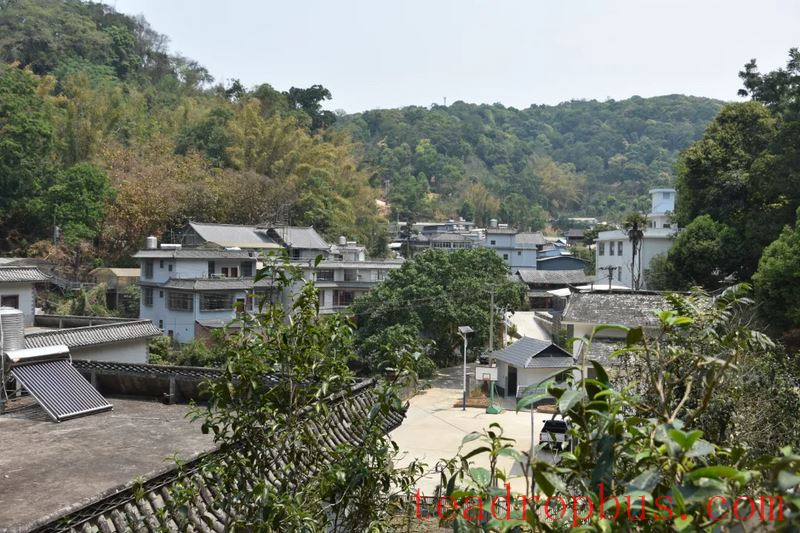
Entering the village, houses with blue tiles and white walls are arranged in a neat pattern, and several tea houses, tea shops, and tea workshops appear in succession. The village environment is clean and tidy, and the roads are well-paved and unobstructed… Years of rural revitalization construction have brought about a new scene of prosperous industries, beautiful environments, and ecologically livable conditions in the village. Huang Yongneng, the head of the village group, has been waiting for us. In his early forties, he has served as the head of the village group for many years. His every move exudes warmth, generosity, and simplicity. We come to his spacious and rustic tea room to taste tea. As boiling water blends with the ancient tree tea, the aroma immediately spreads. A thick and full-bodied tea soup slowly flows down the tongue, slightly bitter but quickly dissipating, followed by a sweet aftertaste that lingers long, with excellent fullness.
The conversation begins over the slowly rising tea aroma. Huang Yongneng tells us that the village group of Luoshuikong has a long history, with many villagers' ancestors migrating from Baixiu Town, Shiping County, Honghe Prefecture during the mid-Qing Dynasty, and they have always lived by planting tea. Over the past decade, with the prosperity and development of the tea industry, all 40 households in the village have taken tea as their main occupation, building Tea processing workshops, organizing tea cooperatives, attracting investment from well-known enterprises, focusing on improving tea quality, and achieving an annual per capita disposable income of more than 60,000 yuan. The tea farmers now lead comfortable and prosperous lives.
During our conversation, we happen to meet He Qingyuan, the director of the Yunnan Provincial Tea Research Institute, who has visited the ancient tea mountain of Luoshuikong multiple times for research. He believes that the tea area of Luoshuikong is one of the core production areas of Yiwu tea, with a long history of tea cultivation and processing. The ancient tea forest in the Luoshuikong tea area covers nearly 2,000 mu, producing 40 tons of tea annually, making it one of the larger tea areas in Yiwu Town. The Luoshuikong tea area is home to the rare and unique Yiwu green bud tea, recognized in the tea industry as one of the best raw materials for Pu'er tea. The Luoshuikong tea area is also one of the starting points of the ancient tea-horse road and one of the birthplaces of tea-horse road culture, with a profound Tea culture. The tea from Luoshuikong is among the best in Yiwu tea. In the nine Mengla Tribute Tea Culture Festivals and Yiwu Tea Competitions that the village group of Luoshuikong has participated in, it has won four gold awards, one Silver award, and one tea king award, making it the village with the most high honors in Yiwu Town. Over the years, the tea from Luoshuikong has gained a reputation in the tea industry for its fragrant water and orchid fragrance, and it is much loved by tea merchants and enthusiasts.
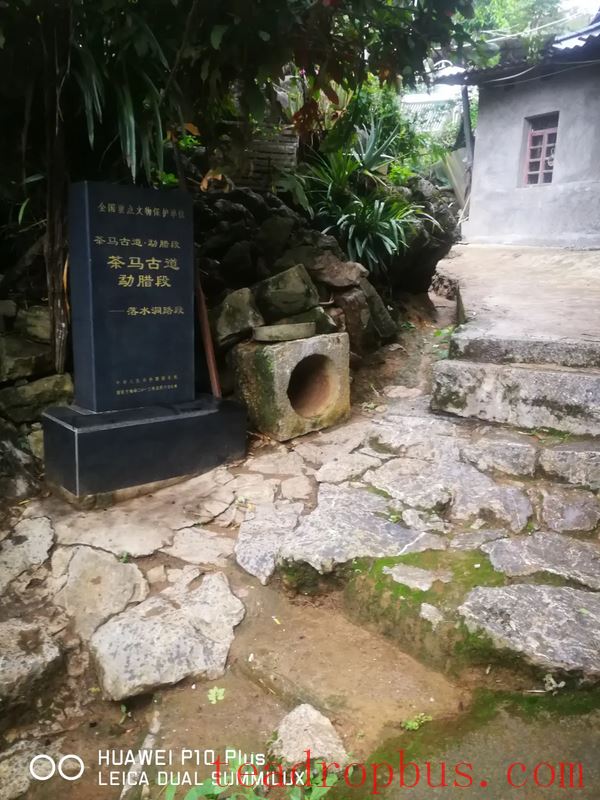
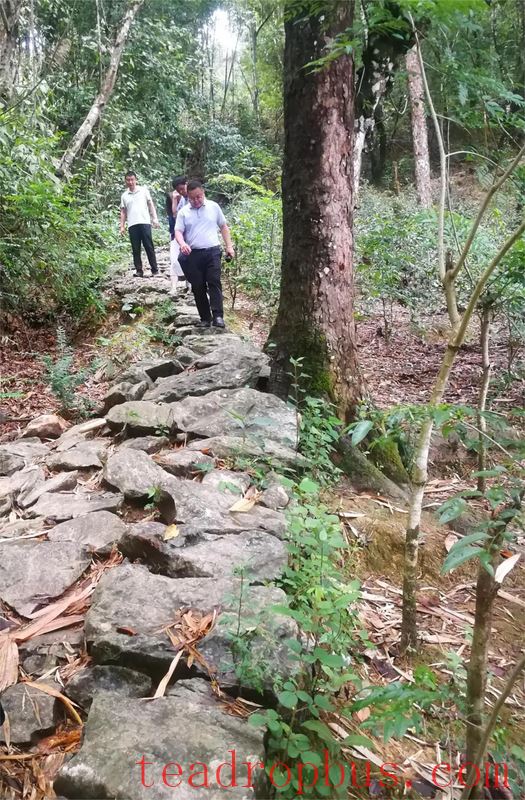
As we walk through the ancient tea mountain of Luoshuikong, historical relics of ancient wells, the ancient tea-horse road, and the king tree of tea continue to catch the eye, evoking memories of past histories and glimpses of former prosperity, and inspiring feelings of the profoundness of tea culture.
The ancient tea-horse road passes through the village group of Luoshuikong, extending along the ancient tea forest toward the distance. Remnants of this ancient tea-horse road can still be seen for several kilometers today, serving as powerful evidence of Luoshuikong's role as an important station and passage on the ancient tea-horse road.
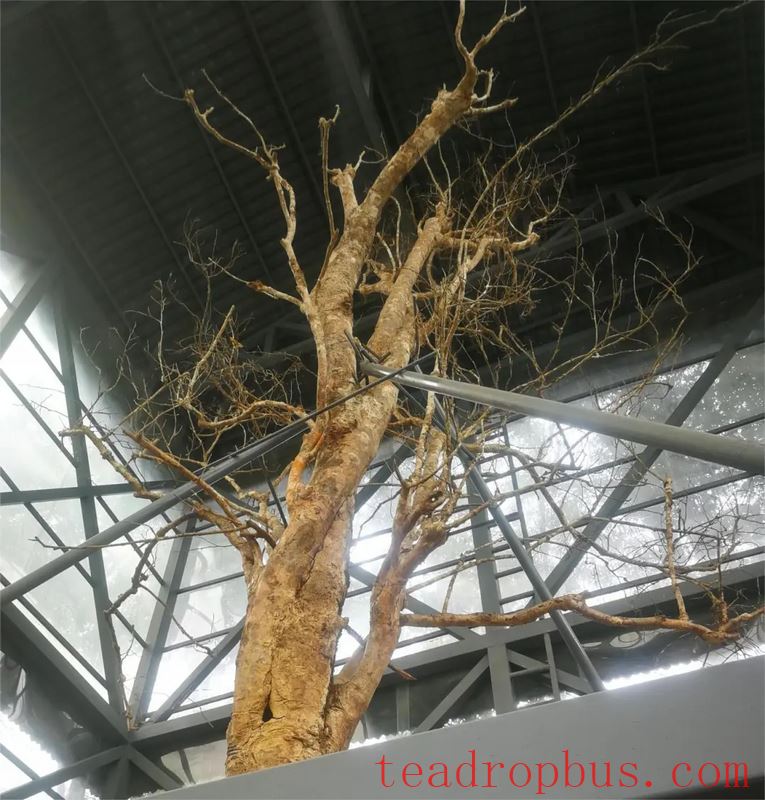
The king tree of tea transferred to a memorial hall after its passing
The ancient tea forest of Luoshuikong has two cultivated-type king trees of tea, witnessing the ups and downs of the tea industry and accompanying the villagers of Luoshuikong for hundreds of years. Every year during the Spring Tea harvest, villagers spontaneously worship the king tree of tea, thanking heaven and their ancestors for their blessings. Unfortunately, the king tree of tea, which was 14 meters tall and had a maximum circumference of 73 centimeters, passed away in 2025. Villagers raised funds to build a memorial hall to commemorate the king tree of tea, reminding future generations to live in harmony with nature and reasonably develop and utilize ancient tea tree resources.